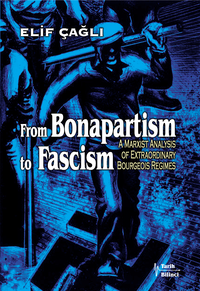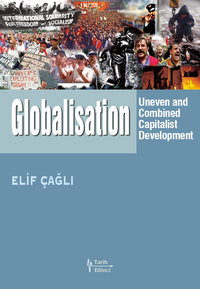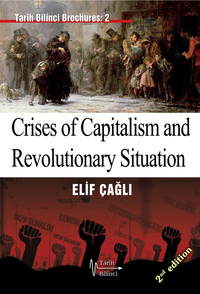The main distinguishing feature between reformist and revolutionary tendencies in the workers’ movement lies in the question of whether or not there is will, tenacity and preparedness to heighten the organised class struggle against the bourgeoisie. The idea that capitalist crisis will somehow be followed by a new period of economic recovery, where measures to improve workers’ rights will be back on the agenda, is an utterly pacifist, conciliationist and reformist notion. Such an approach would have a paralysing effect when it prevails in the workers’ movement, playing into the hands of the bourgeoisie under circumstances where capitalism flounders in a profound crisis. Today, as in the past, reformist strands in the workers’ movement provide an important aid to the bourgeoisie in its effort to alleviate the class struggle. So long as workers’ struggle is kept within the boundaries of the established order through the dominance of reformism, the bourgeoisie would secure extra time and a certain margin for manoeuvre. Yet, it is possible to heighten the level of militancy under conditions of both crisis and economic upswing, when a revolutionary tendency gains ground in the workers’ movement.
In the aftermath of the First World War, many reformists including Hilferding were overestimating the capacity of capitalism to stabilize, asserting that the system would automatically restore itself on a new basis. Yet, capitalism does not operate on the basis of a law of natural equilibrium that ultimately prevails. Often interrupted by crises, upheavals, wars and upsurges in class struggle, the working of the system has a contradictory and irregular character.
As Trotsky remarked in his criticism of Hilferding and those holding similar views, faith in automatic evolution is the most important and the most characteristic trait of opportunism. If the working class fails to heighten the revolutionary struggle, allowing the bourgeoisie the opportunity to rule the world’s destiny for a long number of years, then assuredly some sort of new equilibrium would be established. After a considerable period of economic recession, a new world division of labour is established in agony, a new epoch of capitalist upswing might perhaps ensue. But Trotsky justifiably points out that reformist conception signifies a very dangerous tendency. This political tendency approaches all the questions on the basis of the presumption that the proletariat has already ceased or will cease to struggle.
Taking into account the simultaneous operation of various factors, one can easily realise how misleading it is to assume that capitalist economy would automatically re-establish equilibrium after each crisis. For, the mechanisms which are necessary to revitalise the workings of capitalism function also as the factors that potentially exacerbate the class struggle. A new period of recovery, for instance, means new investments and measures to increase profitability. As a result, capitalists devote their efforts to increasing labour productivity. In order to ramp up production, which had reached rock-bottom during the periods of crisis and recession, measures are introduced such as de facto extension of the working day or increasing the pressure on workers to work more productive within the same working day. These new conditions intensify exploitation of the working class. They also represent an offensive against workers’ rights that surely has the potential to trigger a working class revolt.
Without suppressing a possible workers’ revolt and a serious wave of strikes, it is impossible for the bourgeoisie to stabilize the economy in the way prescribed on paper by bourgeois economists. Thus, inevitably, life takes us beyond the universe of abstract economic analysis, towards the concreteness of reality, that is, the fields of politics and class struggle. Under capitalism, economic development has never been, and never will be, a process that is automatically shaped by numbers and statistics.
It is in no way reconcilable with revolutionary Marxism to adopt a pacifist attitude that overlooks the role of class struggle as if the eventual outcome is a foregone conclusion produced by mere economic conditions. The task ahead of the revolutionary vanguard forces of the proletariat is to identify the characteristics of the ongoing period and to put into practice the tactics necessitated by concrete conditions. As with any kind of battle, there is no other way to know in advance the final outcome in class struggle than to fight tooth and nail to the very end. Take, for instance, the fervent and protracted kind of militant strikes that break out under conditions of economic crisis. Is it possible to anticipate what kind of developments they will lead to? Or suppose that capitalist economy enters a new phase of recovery. Would it be correct to say that it will automatically trigger an upsurge (or a decline) in militant working class struggle?
link: Elif Çağlı, Reformism Refreshes Capitalism, 2 November 2003, https://enternasyonalizm.org/node/611






